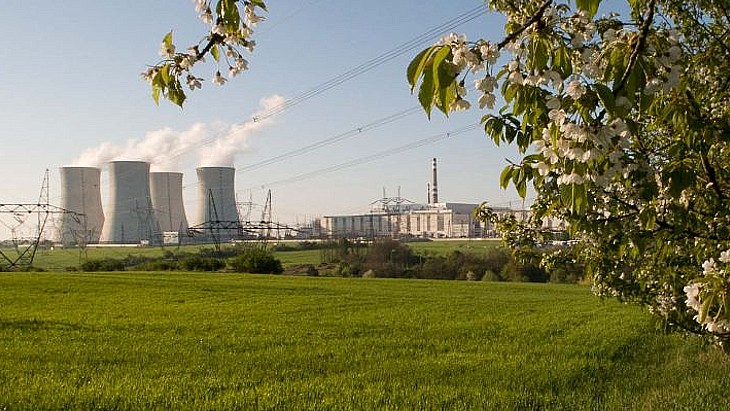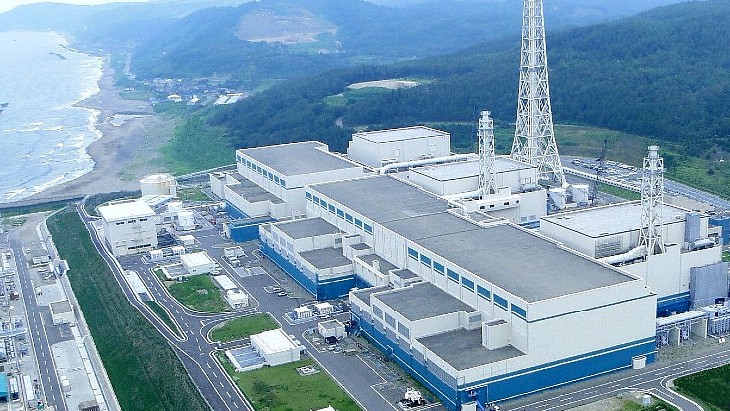The Finnish parliament today voted in favour of Fennovoima's supplement to the decision in principle regarding the construction of a new nuclear power plant in Pyhäjoki, Finland. The vote was carried by 115 to 74.
Fennovoima received a positive decision in principle from the government in 2010 for the construction of a plant of 1500-2500 MWe capacity at Hanhikivi. However, in early March, the company applied to amend that decision in principle to include Rosatom's AES-2006 plant, which uses a 1200 MWe-class reactor.
The cabinet announced in September that, in accordance with Finland's nuclear law, it considers the Fennovoima project "is still for the overall good of society." Fennovoima's decision in principle was sent to parliament for debate. The parliament had the power to either approve or revoke it, but it would not have been able to make changes to the content of the decision in principle.
"I want to thank parliament for the trust they have shown in this important project," Toni Hemminki, CEO of Fennovoima said. "The Hanhikivi 1 nuclear power plant will generate emission-free electricity for Fennovoima's owners at a predictable and reasonable price for decades to come. This large-scale investment will create jobs and give a much-needed boost to the economy."
Fennovoima is required to submit a construction licence application to the government by the end of June next year. The plant design work and construction licence application are being prepared together with the plant supplier, Rusatom Overseas, which is a subsidiary of Russian state nuclear corporation Rosatom.
Work started at Pyhäjoki in mid-September with the construction of a new access road. Between 2015 and 2017, extensive infrastructure work will include excavation and earthworks, as well as the construction of auxiliary buildings. The first concrete is scheduled for 2018.
Rusatom Overseas is in final negotiations with the main suppliers for the project and contracts are due to be signed by the end of the current year, Fennovoima said. Next-phase negotiations will begin in early 2015.
Rusatom Overseas said on 3 December that it welcomes the conditional decision of the Finnish energy company Fortum to enter the Hanhikivi 1 nuclear power plant project by purchasing Voimaosakeyhtiö SF shares.
Fortum said on 2 December it would be ready to participate with a minority - maximum 15% - stake in the Fennovoima nuclear power plant project, provided that Fortum obtains a 75% or more ownership in the hydro assets of Russian territorial generating company TGC-1.
Voimaosakeyhtiö SF said recently it had increased its share in the project to 55.5% from 50.2%. The plant is scheduled to start generating electricity by 2024.
"Fortum's purchase of a minority stake in the project implemented by Fennovoima will enable meeting the requirement of the Ministry of Employment and Economy of Finland that at least 60% of the shares should be in Finnish ownership," Rusatom Overseas said.
Kirill Komarov, deputy CEO for corporate development and international business at Rosatom, said in the same statement that Russia's nuclear industry has been cooperating with Fortum for more than 40 years, and Rosatom is happy that this cooperation is entering a new phase.
"Fortum's readiness to participate in our joint project with Fennovoima is a truly positive signal. If Fortum becomes a shareholder, the Hanhikivi 1 project will have access to the competences of one of the leading energy experts in Finland," Komarov said.
Rusatom Overseas and Fennovoima signed an engineering, procurement and construction contract for Hanhikivi 1 last December. In March, RAOS Voima Oy, a subsidiary of Rusatom Overseas, purchased a 34% stake in Fennovoima.
Founded in 2007, Voimaosakeyhtiö now includes more than 40 companies. Two of them - Sallila Energia and Keravan Energia - decided to increase their stake in the plant, according to Fennovoima, thus increasing Voimaosakeyhtiö's stake to 55.5%. Just over 10% in the project remains unallocated.
Researched and written
by World Nuclear News




_53514_33880.jpg)


_91467.jpg)





